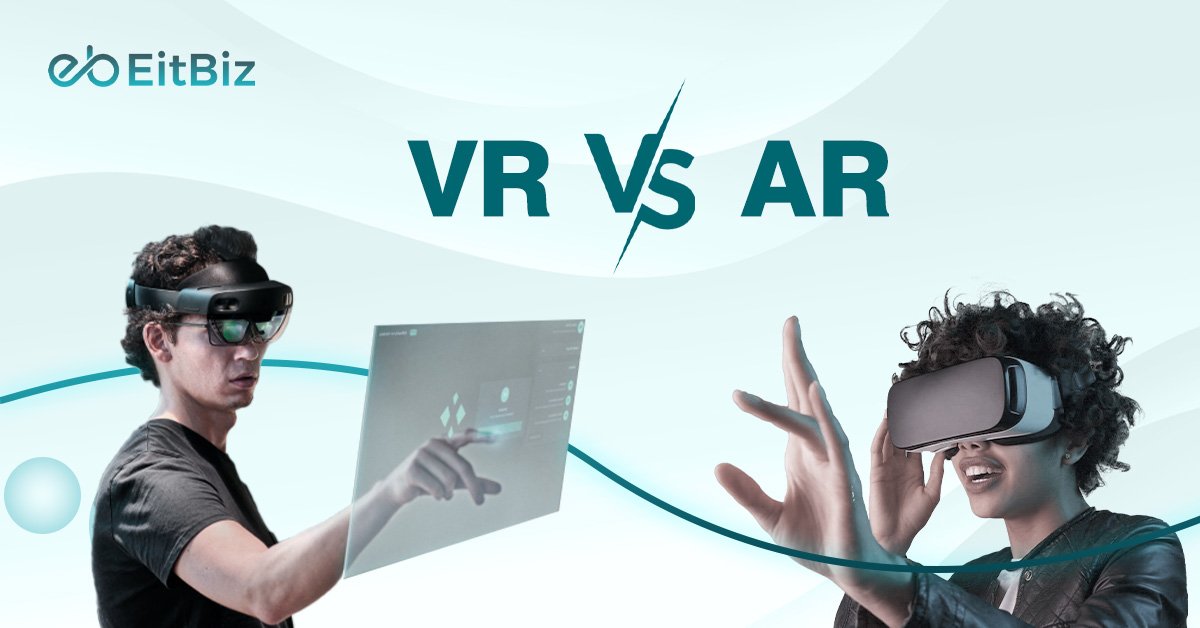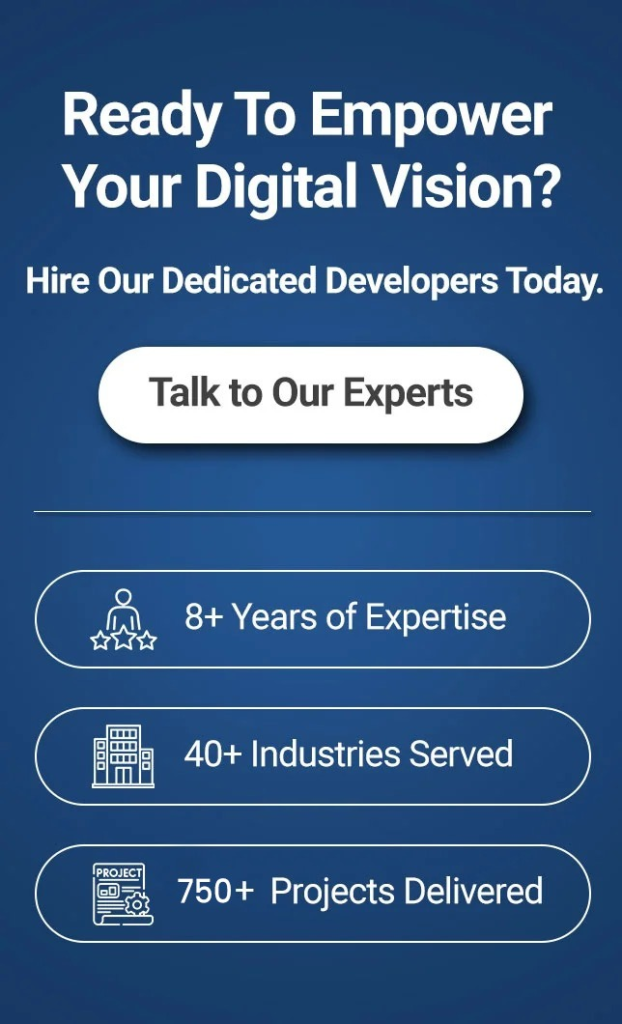2025 is here, and the “Augmented Reality vs Virtual Reality” debate is still underway!
While both AR & VR technologies are poised to disrupt mobile app development, they tend to offer different user experiences.
The former is all about integrating digital content into our real-world environment while the latter engages users and replaces the real world with the virtual world.
But here’s the catch!
From gaming to the shopping and entertainment sector, these technologies have immense potential to disrupt the mobile app development process.
Why? Well, the stats don’t lie!
- The AR & VR market is all set to go 2X between 2024 and 2028, reaching over 58$ billion. (Source: Statista)
- The AR market alone is anticipated to reach nearly $40B by the end of 2027. (Source: Artillery Intelligence).
- The consumer VR market is all set to increase from $16 Billion to $18 Billion by the end of 2025. (Source: Statista).
Considering such facts, both AR & VR will likely give you a competitive edge in mobile application development!
But now the question is: Virtual Reality vs. Augmented Reality: What should you choose for application development in 2025?
Let’s find out!
What is Augmented Reality?
To put it simply, Augmented Reality refers to the technology where digital content like images and 3d models overlays real-world scenarios to render seamless user experiences. To use AR, all you need to have a smartphone with a dedicated camera and an AR app. Speaking of its functioning, the camera captures the environment around you and the application then analyzes and projects the computer-generated graphics.
One of the popular examples of Augmented reality apps is none other than “Pokémon Go” where virtual objects are layered over the real world.
When it comes to eCommerce mobile app development, you can offer a “Virtual try-on” feature for products. In the case of education app development, try to utilize AR tools to render learning experiences.
| Verdict: For product-based app development, AR is the clear winner. |
Let’s take a look at some of the popular apps built using AR.
What are the Popular Apps Built Using Augmented Reality?
Let’s take a look at some of the famous apps built using AR technology.
- Snapchat
- Google Maps
- Holo
- Pokémon Go
- IKEA Place
- Yelp
- Quiver
Next, What is Virtual Reality?
Coming to the battle of augmented vs. virtual reality, VR is relatively popular because it completely places the users into a fully digital and 3D environment. Remember that VR is an ideal option that guarantees the user’s complete focus on the content without allowing them to move an inch from their comfort.
If you’re a brand trying to tell a story or offer your customers a real-life experience in person via a smartphone app, VR is the solution!
Let’s say, you want to run into travel app development or healthcare app development! Implementing VR may provide an immersive experience to the users. Tourists can visit exotic locations right from the comfort of their homes. On the other hand, VR can train new healthcare staff through the app and eliminate the risks involved.
| Verdict: For healthcare and travel-based app development, VR has an edge. |
What are the Popular Apps Built Using Virtual Reality?
Though there are multiple virtual reality apps, here are a few of them.
- Google Cardboard
- VRSE
- Oculus VR
- The VR Cave
- The VR Museum of Fine Art
- Tilt Brush
Now, you have understood the meaning of both AR & VR! But if you want to know the winner of “Augmented Realty vs Virtual Reality”, it’s time to learn differences based on common parameters.
Let’s dive in!
Augmented Reality vs Virtual Reality: What to Choose for Mobile App Development in 2025?
Let’s take a look at the “augmented vs virtual reality” differences in 2025.
Difference #1: Intent & Experience
When it comes to delivering real-life experiences to users, AR helps add digital elements to the real world which may help users to interact with virtual objects. On the other hand, VR efficiently provides a completely simulated environment, which replaces the real world to offer an immersive experience.
Difference #2: User Immersive Level
Speaking of the “Virtual vs. Augmented Reality” difference, the former provides a greater level of immersion, which makes the users feel that they are in another dimension while they are in the comfort of their homes. On the other hand, the latter offers a practical approach as it incorporates digital objects into the real world.
Difference #3: Hardware
Coming to the hardware requirements, AR only demands a dedicated smartphone or a tablet. On the other hand, VR demands specialized headsets and controllers to keep the users engaged in the immersive experience.
Difference #4: Awareness
In the battle of virtual reality vs augmented reality, in the former, the user is isolated from the real world while speaking in the latter, the user is fully aware of the real world.
Difference #5: Software Requirements
Lastly, virtual reality demands robust software to create a realistic experience. On the flip side, it demands simple technology to build AR technology for mobile app development. Thus, it simply means that incorporating AR technology is relatively cost-effective.
Final Thoughts
So, there you have it! That’s wrap to the “augmented reality vs. virtual reality” in 2025! It is no secret that AR and VR are mushrooming technologies and serve different purposes. Whether you’re planning to give a reality touch to your mobile app with AR or completely get immersed in VR, these technologies will continue to dominate in 2025 and beyond. Ready to build a mobile app with AR/VR? If so, look no further than EitBiz! Simply visit EitBiz or you can even drop us an email at info@eitbiz.com to discuss your mobile app development requirements today!







